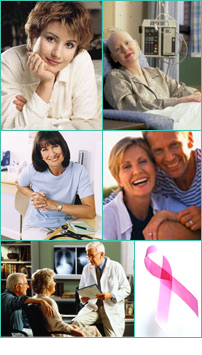Certain types of chemotherapy and some pain medications can cause the side effect of nausea (i.e., feeling like you are going to throw up) and vomiting (i.e., throwing up the contents inside your stomach). Some types of chemotherapy cause secretion of molecules including serotonin (also called 5-HT) from the small intestine into the bloodstream.[1] These molecules affect the emesis (i.e., vomiting) center in the brain. When the emesis center in the brain is stimulated, a feeling of nausea occurs, and vomiting may occur.
The likelihood that a particular chemotherapy drug or pain medication will cause nausea and vomiting is categorized as mildly, moderately, or highly probable to cause these side effects.[1] Many cancer patients receive combinations of chemotherapy drugs or a combination of a chemotherapy drug and a pain medication, making it more likely that the patient may experience the side effects of nausea and vomiting.
The following types of nausea and vomiting can occur due to chemotherapy:[1, 2]
• Acute onset nausea and vomiting, which occurs within the first 24 hours after chemotherapy. Usually acute onset nausea and vomiting starts a few minutes to several hours (peaking at more than 5 to 6 hours) after the chemotherapy is given and ends about 24 hours after treatment.
• Delayed onset vomiting, which occurs more than 24 hours following chemotherapy. The timing and duration of delayed vomiting depend on the particular chemotherapy drug (e.g., cisplatin, carboplatin, cyclophosphamide, and doxorubicin) used and the dose given. For example, cisplatin-related vomiting usually will be at its worst from 48 to 72 hours following chemotherapy and can last for 6 to 7 days.
• Anticipatory, which is an uncommon type of nausea and vomiting that has been established psychologically and physiologically from previous unpleasant experiences with nausea and vomiting due to chemotherapy. Anticipatory nausea and vomiting occurs after the patient has experienced nausea and vomiting from past treatment with chemotherapy and prior to additional treatment with chemotherapy. Due to a conditioned response of the nausea/vomiting side effect from chemotherapy, the patient anticipates that nausea/vomiting will occur as it did before and experiences nausea and vomiting at the time of preparation for the next dose or cycle of treatment with chemotherapy.
• Breakthrough vomiting, which occurs despite the use of anti-emetic (anti-nausea and anti-vomiting drugs) treatment to prevent or control nausea and vomiting. Therefore, breakthrough vomiting requires additional treatment with anti-nausea/anti-vomiting medications.
• Refractory vomiting,, which occurs after one or several chemotherapy treatments, even though the patient is being treated with anti-emetic medications to prevent or control nausea and vomiting. As the treatment with the particular anti-emetic medication is no longer effective, the patient has become "refractory" (is no longer responding) to the particular medication for prevention and control of nausea and vomiting.
Various types of nausea and vomiting from chemotherapy and pain medications are preventable and manageable. If you are experiencing nausea and vomiting from chemotherapy and/or pain medications, notify your oncologist and oncology nurse. For information on how to prevent and manage nausea and vomiting from chemotherapy and pain medications, see our Q&A called, "Is there anything I can do to manage the nausea and vomiting from chemotherapy and pain medications?"
REFERENCES
1. Managing nausea and vomiting. Accessed at www.chemotherapy.com.
2. The National Comprehensive Cancer Network. Accessed at www.nccn.org/patients/patient_gls/_english/_nausea_and
_vomiting/index.htm.
|


